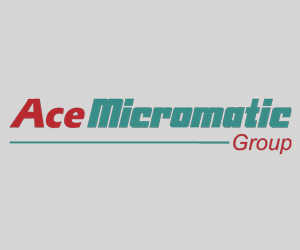
The world is shifting gears, veering towards a health-conscious revolution. People are waking up to the importance of wellness and nutrition. They're not just sipping green tea; they're chasing vitality like it's the golden fleece.
In response, India's industry stakeholders and regulators, including the government, are undertaking transformative efforts. A task force was established in 2021 to foster a conducive environment for the nutraceutical industry, marking a significant step towards progress. However, progress remains gradual, and changes are perpetual.
India has the potential to significantly expand its exports of nutraceuticals as its first goal. Subsequently, with the growth of its economy and disposable income, India is poised to become a high-growth domestic market for nutritional products. India requires a well-defined and determined strategy for entry to capitalise on these two growth opportunities.
Government endeavours and vital policy measures to propel nutraceutical industry growth
Formulating a Product Linked Incentive (PLI) scheme will be central to sustaining growth in the nutraceutical industry. This scheme offers an integrated approach, specifically tailored to the sector's needs, with significant potential to boost agriculture and the entire value chain.
Equally critical for industry expansion is the implementation of a competitive tax policy. The industry can achieve a more favourable position by elevating nutraceuticals to the same status as pharmaceuticals and reducing the Goods and Services Tax (GST) on these products from the current 18 per cent to below 10 per cent.
Further, promoting research and development (R&D) through public-private partnerships (PPPs) and establishing dedicated R&D parks will act as catalysts for industry growth. The integration of nutraceuticals into the National Medicinal Plants Board scheme and the amendment of the Biodiversity Act are also strategic moves poised to incentivise backward vertical integration in companies.
Instituting mandatory standards and ensuring quality in the nutraceutical market
Collaboration between the Food Safety and Standards Authority of India (FSSAI) and industry experts is imperative to establish mandatory standards. This not only regulates the market but also promotes growth by ensuring the production of highquality and trustworthy products
Integration of nutraceuticals into India's educational system
The integration of nutraceuticals into India's educational system is gaining momentum, driven by heightened awareness. Achieving this involves integrating nutraceuticals into the curriculum, fostering collaboration between the education sector and the industry, and garnering government support. By incorporating nutraceutical education into the curriculum, supporting research, and implementing regulatory measures, the educational system can cultivate a culture of health and wellness. The benefits extend beyond awareness to improved health, reduced healthcare expenditures, and enhanced academic performance.
HSN codes and a dedicated desk under the appropriate ministry
Streamlining product categories, standardising HSN codes for nutraceutical products, and aligning them to facilitate international trade are imperative. The current classification of all products under the generic category of "others" poses challenges for tracking and monitoring. A more specific categorisation, akin to that for honey, sugar, and wheat flour, is essential.
Several industries, including nutraceuticals, depend on China for raw materials. Considering the current trade and geopolitical tensions, India's potential to become a global export and manufacturing hub hinges on several key factors, such as a specialised focus on niche markets, infrastructure development, and trade policy reforms. India's advantages, including cost-effective labour, abundant resources, and a growing middle class, can position it as a strong ‘China plus one' alternative. Looking ahead, the Indian nutraceutical industry is on the cusp of a significant breakthrough. With the rising trend of preventive healthcare, this sector is not just poised for domestic growth but also stands as a beacon for global market expansion. The key to realising this potential lies in the swift and effective implementation of streamlined processes underpinned by a well-defined strategic roadmap. By transitioning efficiently from planning to action, India will be able to consolidate its position in the global nutraceutical arena.




































